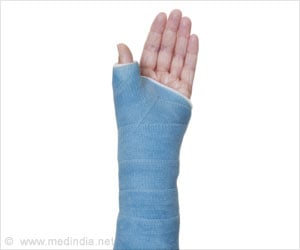Johns Hopkins researchers have induced mutations in mice to understand the various steps involved in learning basic motor skills. The study mainly aims at following the behavior of two proteins and the specific steps they take to control a neuron's ability to learn by adapting to signals from other nerve cells. The findings were published in the journal Neuron. The study shows how the two proteins PICK1 protein and AMPA receptors interact with specific neurons, called Purkinje cells. These cells are in the lower back part of the brain.
They become de-sensitized to certain molecular signals from neighboring neurons. This process is known as long-term depression (LTD). This process is responsible for several forms of motor learning; one such is the vestibulo-ocular reflex. The vestibulo-ocular reflex coordinates eye movements with head movements, allowing us to perform activities such as reading in a moving automobile. This study unravels the minute details of how LTD occurs. Richard L. Huganir, Ph.D., a Howard Hughes Medical Institute investigator and chair of the Solomon H. Snyder Department of Neuroscience at Hopkins analyzed in a detailed manner the mechanism by which PICK1 controls the Purkinje cell's response to the signaling molecule, glutamate. The Purkinje cells swallow up surface proteins called AMPA receptors.Without AMPA receptors on the surface, these cells cannot respond to signals from neighboring neurons. Researchers now know how PICK1 are involved in the swallowing and removal of AMPA receptors. The investigators used individual nerve cells as well as brain slices from three different populations of genetically modified mice lacking different proteins required for establishing LTD. Mice lacking the PICK1 protein are unable to establish LTD or remove AMPA receptors from cell surfaces. When PICK1 is added artificially back into these neurons, AMPA receptors are removed and LTD is restored, showing that PICK1 is necessary for LTD.
Mice that lack the part of the AMPA receptor that physically interact with PICK1 also do not establish LTD. From these result it is confirmed that PICK1 must physically touch the AMPA receptor for LTD to occur. It is also known that a chemical change to the AMPA receptor, called phosphorylation is necessary for establishing LTD. Mice that lack a small part of the AMPA receptor which is essential for phosphorylation do not undergo LTD. This result confirms that phosphorylation is an essential step toward LTD. Further they plan to study whether LTD is crucial for motor learning.





